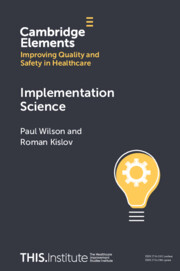Objectives: There is widespread commitment—at least in principle—to “evidence-informed” clinical practice and policy development in health care. The intention is that only “appropriate” care ought to be delivered at public expense. Although the rationale for an appropriateness agenda is widely endorsed, and methods have been proposed for addressing it, few published studies exist of contemporary policy initiatives which have actually led to successful disinvestment. Our objective was to explore whether the direct involvement of policy stakeholders could advance appropriateness and disinvestment.
Methods: Several collaborative engagements with policy stakeholders were undertaken to adapt and combine conceptual and empirical material related to appropriateness and disinvestment from the literature to create tools and processes for use in Canada and the province of Ontario in particular.
Results: By combining inputs from the literature with colloquial evidence from policy stakeholders, a definition of appropriateness was developed and, importantly, endorsed by all the provincial and territorial ministers of health in Canada. Second, a reassessment framework was successfully implemented for identifying priorities for selective disinvestment.
Conclusions: When scientific evidence was combined with colloquial evidence from policy stakeholders, progress was made on the design and successful implementation of policies for appropriateness and disinvestment.


